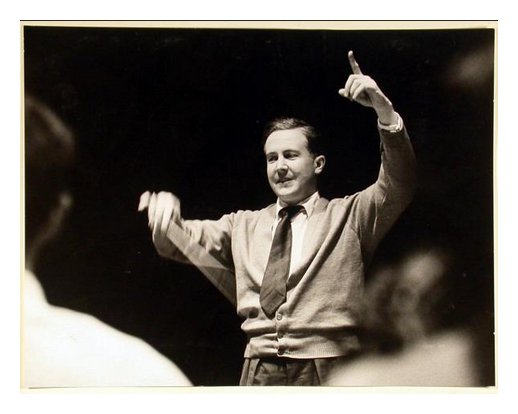

|
Edmond de Stoutz (Conductor)
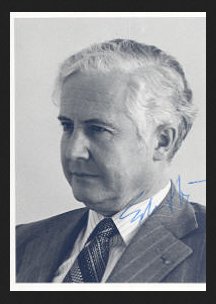 Born: December 18, 1920 - Zürich, Switzerland
Born: December 18, 1920 - Zürich, SwitzerlandDied: January 28, 1997 - Zürich, Switzerland The Swiss conductor, Edmond de Stoutz, studied law at the University of Zürich. Then he switched to music and learned piano, cello, oboe, percussion and composition at the Hochschule für Musik und Theater in Zürich; later he pursued training in Salzburg and Vienna. De Stoutz began his career as cellist in various ensembles, including two years as a cellist and a drummer in the Tonhalle-Orchester Zürich. In 1945 he founded the Hausorchester-Vereinigung (House Orchestra Association). From 1951 this was the Zürcher Kammerorchester (Zurich Chamber Orchestra), with which he toured widely as a conductor. In 1962 he also founded the Zürcher Konzertchor (Zürich Concert Choir). In his programs he invariably included works by contemporary composers, especially Swiss. He was responsible for several Swiss premieres of works by Frank Martin, Peter Mieg, Paul Müller-Zürich, and Rolf Urs Ringger among others. In 1965 he was awarded the Hans-Georg-Nägeli-Medaille of the City of Zurich. He was also awarded the Prize of the Doron-Stiftung, and in 1991 Freiheitspreis (Freedom Prize) of the Max Schmidheiny-Stiftung. He conducted the ZKO until 1996, a year before he died. His discography includes many concertos by J.S. Bach, Mozart, Igor Stravinsky, Giuseppe Tartini, and Othmar Schoeck. |
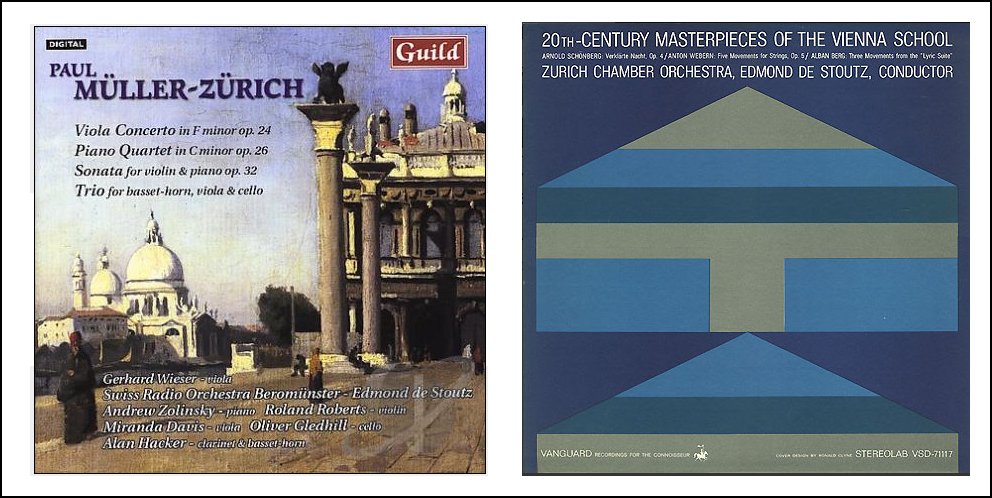
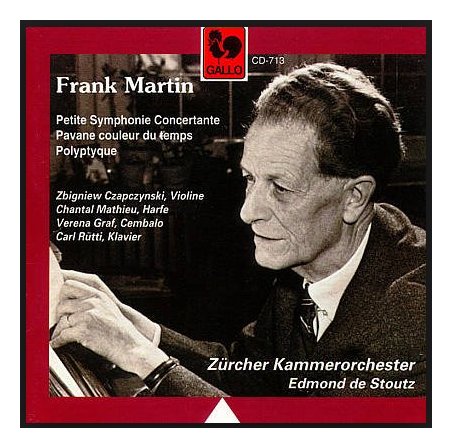 EdeS: I’m absolutely free, and that’s why there
is a conductor. Otherwise we could fix everything and let it go.
No, the evening is the moment. Every evening is a special evening and
is a unique evening. We always play here and now, and that’s only one
possibility. The next day, if we want to imitate what we did yesterday
it would be a dead concert. Every concert has its right to be different,
even if it is worse or longer or shorter. That is not important.
It has its own character, like human beings. All human beings have
the same program — two arms and two legs and so on
— but all are different. Each person is an individual, and
every concert is individual. Beethoven proposes a symphony, but we
make it, and we make it differently every day. He accepts that and
he expects that. He gives us only the minimum of indications of what
we must do, and we make the living body of it. He gives the plan of
the symphony, and we make the symphony. But we are not alone.
The other half of the concert is made by the audience. The audience
listens, and the symphony really only exists in the heart of everybody who
is present. So half of the work is done by those who listen.
We are in contact with the audience, and together we make a concert.
We’re influenced by their thoughts.
EdeS: I’m absolutely free, and that’s why there
is a conductor. Otherwise we could fix everything and let it go.
No, the evening is the moment. Every evening is a special evening and
is a unique evening. We always play here and now, and that’s only one
possibility. The next day, if we want to imitate what we did yesterday
it would be a dead concert. Every concert has its right to be different,
even if it is worse or longer or shorter. That is not important.
It has its own character, like human beings. All human beings have
the same program — two arms and two legs and so on
— but all are different. Each person is an individual, and
every concert is individual. Beethoven proposes a symphony, but we
make it, and we make it differently every day. He accepts that and
he expects that. He gives us only the minimum of indications of what
we must do, and we make the living body of it. He gives the plan of
the symphony, and we make the symphony. But we are not alone.
The other half of the concert is made by the audience. The audience
listens, and the symphony really only exists in the heart of everybody who
is present. So half of the work is done by those who listen.
We are in contact with the audience, and together we make a concert.
We’re influenced by their thoughts.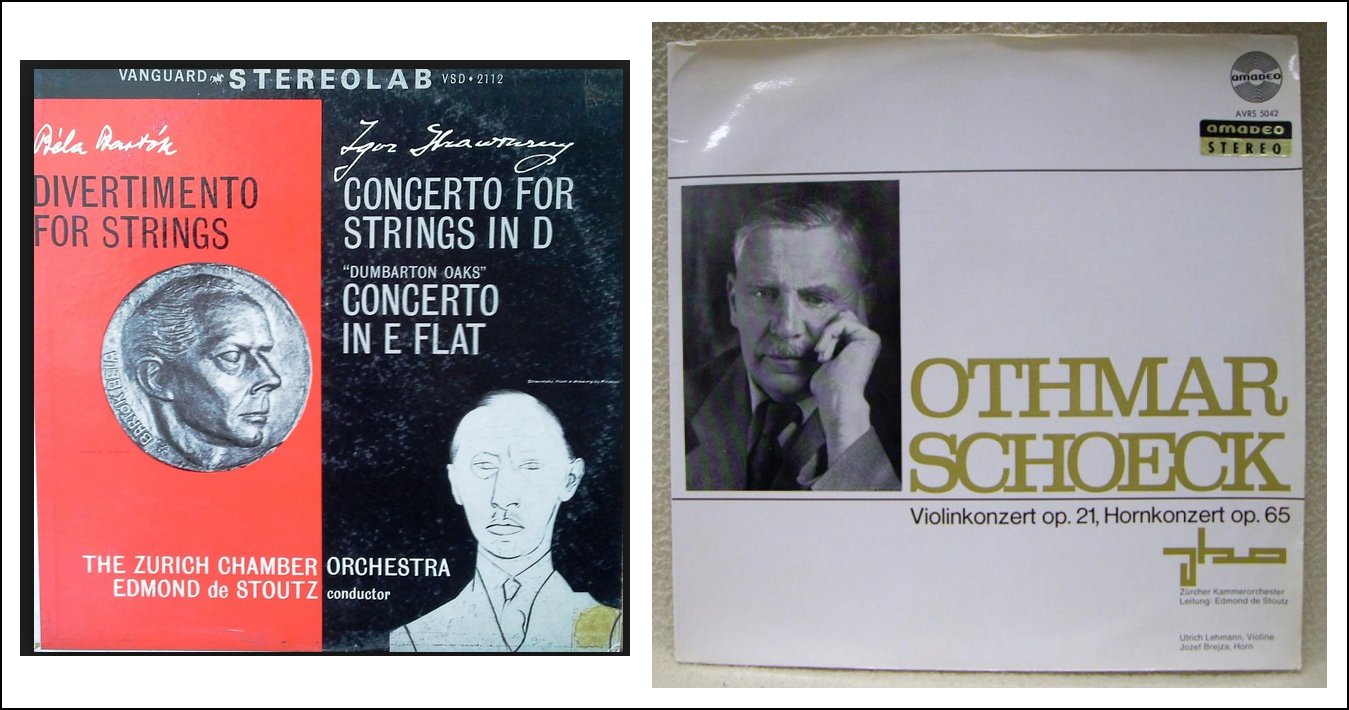
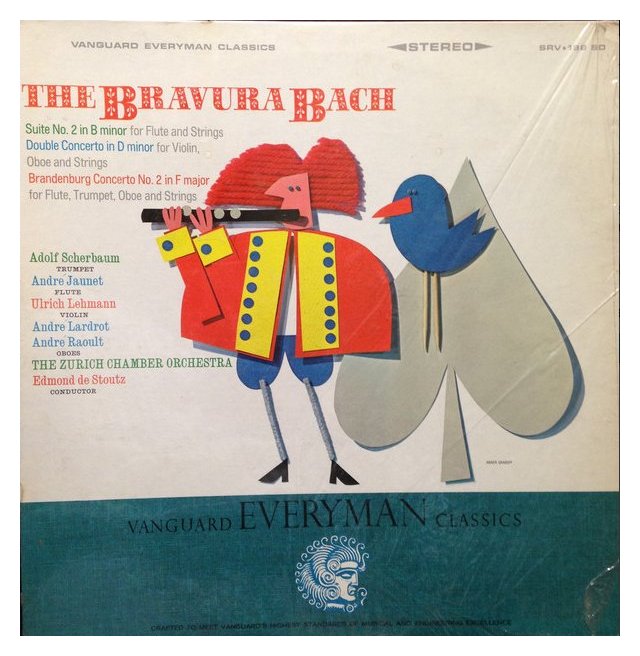 BD: You have the entire gamut of music from the
last three hundred years to choose from. How do you select which
pieces you will perform?
BD: You have the entire gamut of music from the
last three hundred years to choose from. How do you select which
pieces you will perform?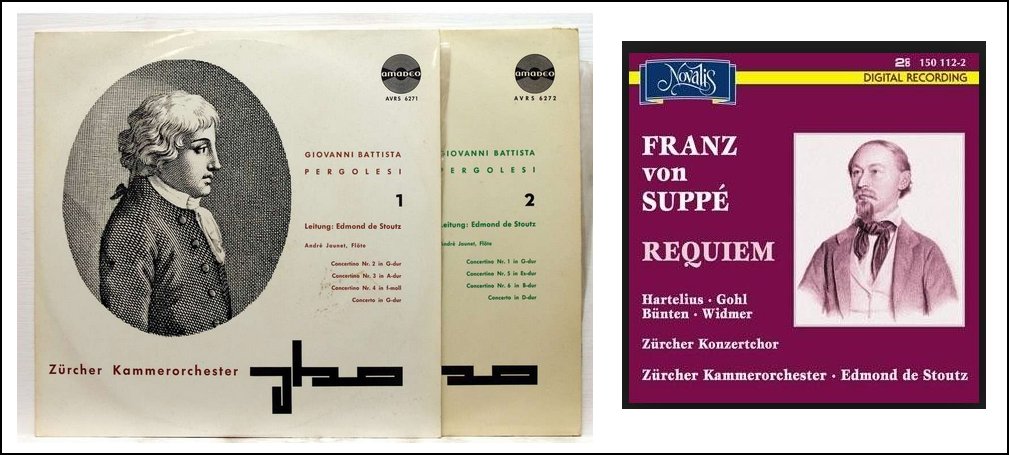
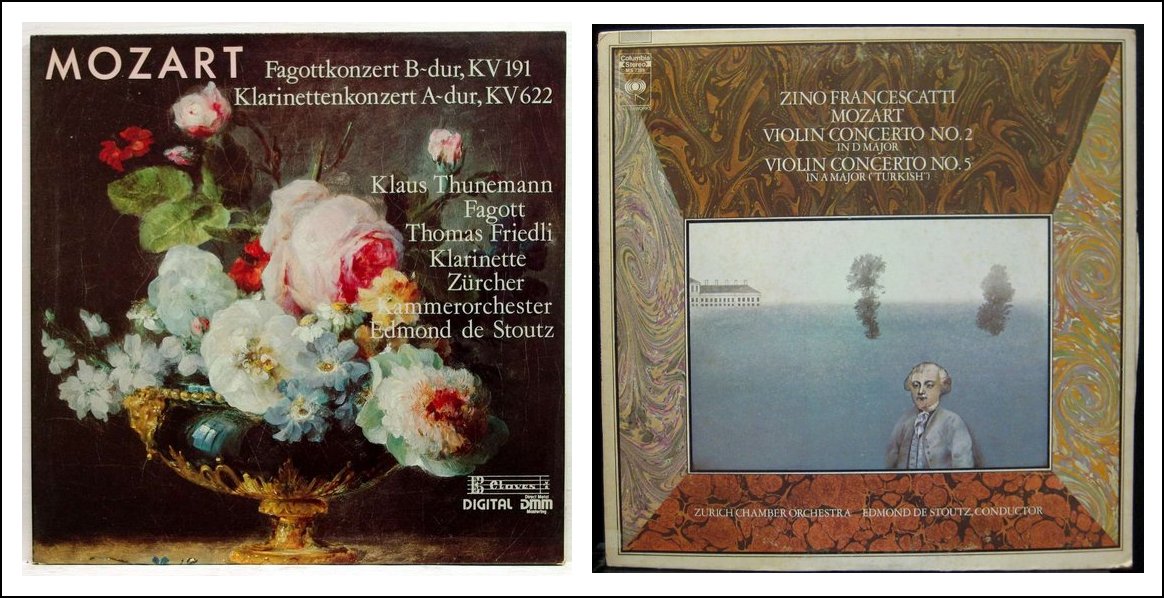
© 1987 Bruce Duffie
This conversation was recorded in Chicago on October 24, 1987.
Portions were broadcast on WNIB in 1990, and again in 1995 and 2000.
This transcription was made in 2016, and posted on this website at that time.
To see a full list (with links) of interviews which have been transcribed and posted on this website, click here. To read my thoughts on editing these interviews for print, as well as a few other interesting observations, click here.
Award - winning broadcaster Bruce Duffie was with WNIB, Classical 97 in Chicago from 1975 until its final moment as a classical station in February of 2001. His interviews have also appeared in various magazines and journals since 1980, and he now continues his broadcast series on WNUR-FM, as well as on Contemporary Classical Internet Radio.
You are invited to visit his website for more information about his work, including selected transcripts of other interviews, plus a full list of his guests. He would also like to call your attention to the photos and information about his grandfather, who was a pioneer in the automotive field more than a century ago. You may also send him E-Mail with comments, questions and suggestions.